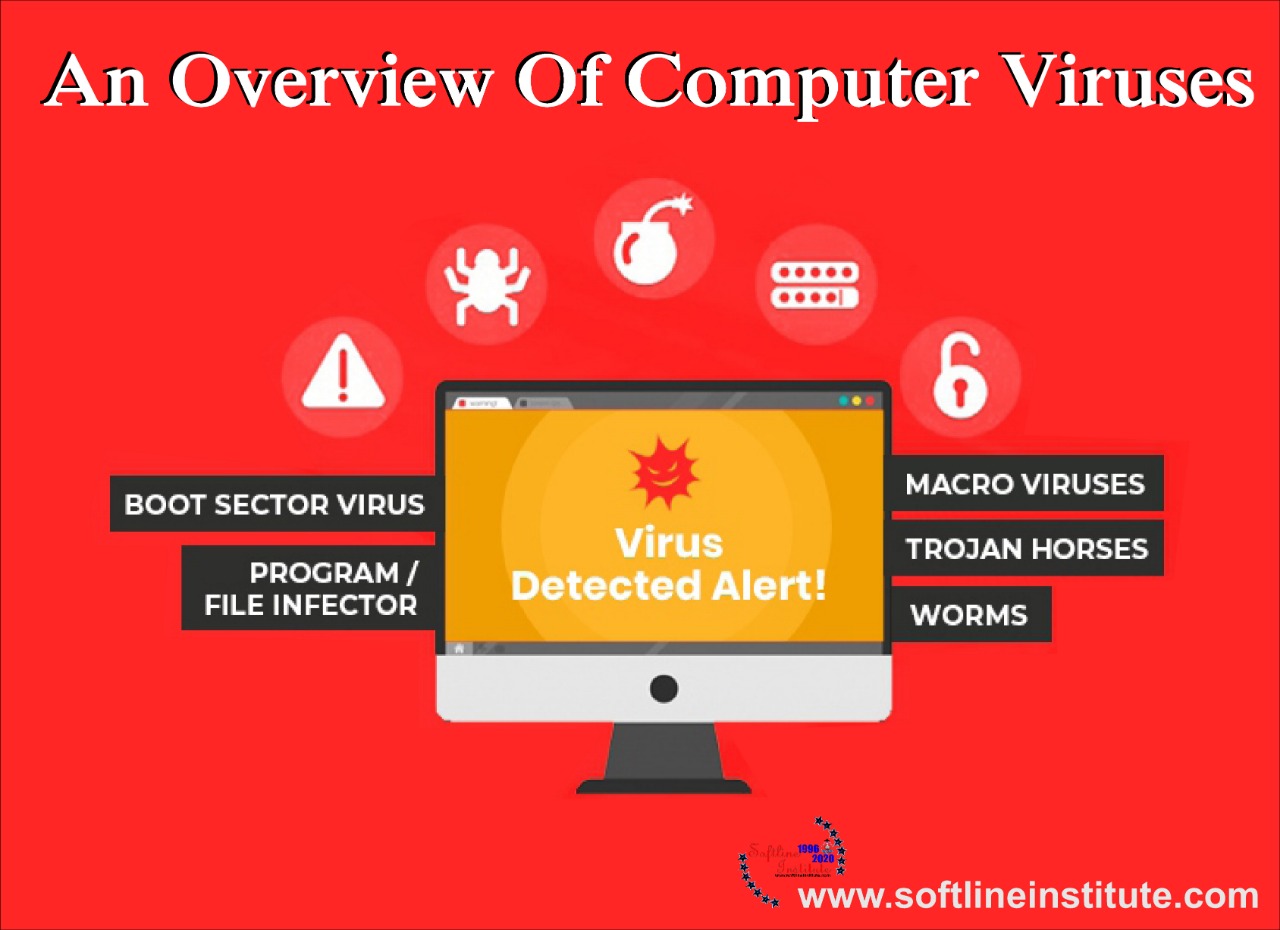1. What is computer Virus?
A Computer Virus is a small block of coded instruction that obtain control of a PC’s CPU and directs it to perform unusual and often destructive actions.
Virus also called perverse software is a program which knows how to copy itself and attaches itself to other programs which further spread the infection. Anti virus is the method to get rid of perverse software or the viruses.
2. Classifications of Viruses
Viruses are classified in the following types:
(a) Trojan Horse
A Trojan Horse is a program that invades a computer system by secretly attaching itself to a valid program downloaded into the computer. it may be used to locate password information, or it may alter an existing program to make it easier to gain access to it. A virus is called a Trojan horse that continues to infect program over and over again. It also pretends to do something useful or interesting. But when run, it produces some harmful effects like scrambling FAT (File Allocation Table) or formatting the hard disk.
(b) Time and Logic Bombs
A Time and Logic bomb is a program that destroys data; for example, it may reformat the hard disk or randomly insert garbage into data files. A time bomb as the name suggests, is triggered by an event. It can format the hard disk on a given date or slow down computer every Friday or make a ball bounce around the screen.
A logic bomb may be brought into a personal computer by downloading a public-domain program that has been tampered with. Once executed, the logic bomb usually does its damage right away, whereas a software virus slowly invades a system and attaches itself to other programs too.
(c) Melissa and SKA Virus pertaining to MS Word files.
Melissa virus attacks MS Word documents and spreads very fast. This virus affects Microsoft word documents by installing itself to Normal.doc and disabling the macro protection message infects all the Word files opened or created subsequently. The message generated by the virus says “Here is a document you asked for…don’t show anyone else.”
A new virus called Melissa spread around the world rapidly, infecting many computers and bringing down networks. It was a Word Macro virus and used Microsoft outlook to send infected documents across he Internet. The Melissa virus belongs to the so called class infectors and resides in the module “This Document.” The module is renamed by the virus to Melissa. When an infected document is opened in Word 8, the virus removes the Tool/Macro menu item and then turns off set several registry keys and then pro three options: Confirm Conversion, Virus protection and Save Normal Prompt.
Worms and Virus
A worm is a destructive program that is designed to adulterate database either all at once or over a period of time. It is very similar to the logic bomb. The purpose of worm can range from a simple prank that pops up a strange message on the screen out of the blue, to the actual destruction of programs and data that may be set of occur at any time in the future.
A virus is similar to a worm, which is also a destructive program, however, the virus always attaches itself to other programs, whereas the worm may not. Worms are less harmful than viruses. They do not. Worms are less harmful than viruses. They do not require any carrier program and spread by duplicating themselves.
Preventive Measures and Treatment
The saying “Prevention is better than cure” should be the guiding principle for organisations to control virus spread. There are various things one can do to prevent viral infection in a computer system. These are:
(a) Limit sharing of software.
(b) Limit transitivity.
(c) Limit functionality.
(d) Use the scanner and virus remover.
(e) Using vaccine program.
(f) Treatment Method.
(g) If you for a folder listing, look carefully at the contents of the folder.
(h) Observe whether your computer system is slowing down.
(i) Watch for files that disappear.
(j) Keep a lookout for decreases in the main memory or reduction of disk space.
(k) Watch for unusually large sizes on program files.
(l) Watch for unusual displays on the computer screen.
(m) Use caution when using any new software. there have been cases, where commercial software has been sold with a virus.
Remote Access Security
Providing network access to people who want to dial in over public telephone lines has added an entirely new dimension to the task of keeping business-critical information secure conventional telephone systems are public. Any one can dial a number and reach the portal to your company’s network. the primary concern of remote-access security is to make sure that only known, authorized users can enter that door.
FOR MORE INFORMATION
